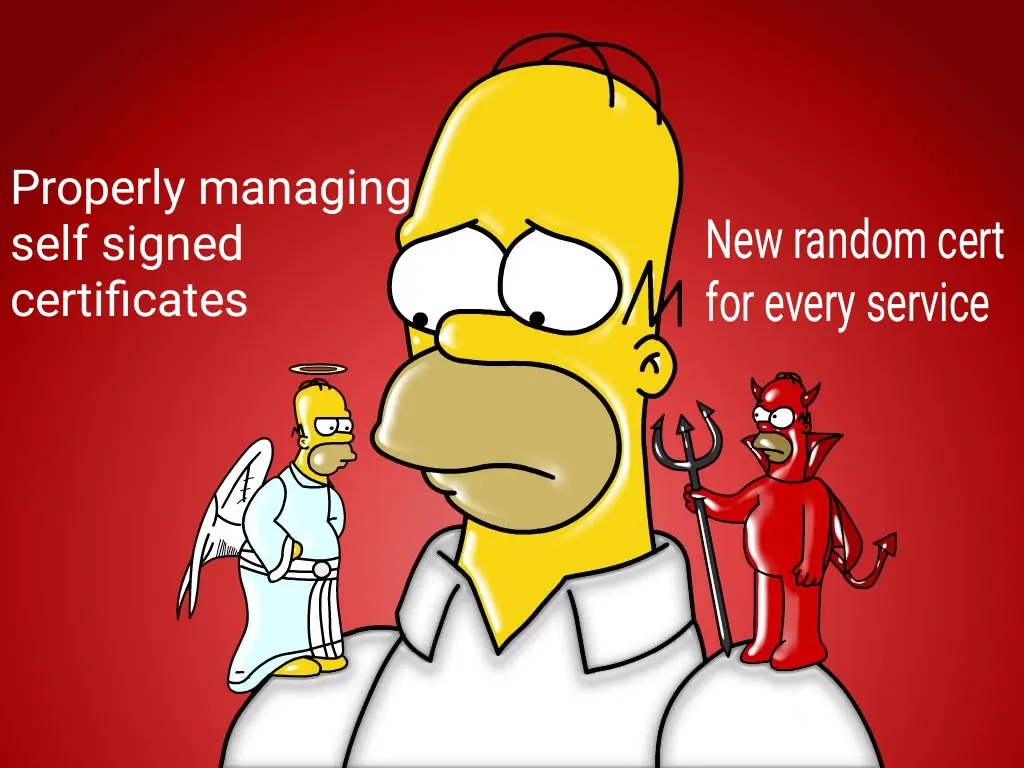this post was submitted on 02 Oct 2023
281 points (93.2% liked)
Sysadmin
10719 readers
16 users here now
A community dedicated to the profession of IT Systems Administration
No generic Lemmy issue posts please! Posts about Lemmy belong in one of these communities:
!lemmy@lemmy.ml
!lemmyworld@lemmy.world
!lemmy_support@lemmy.ml
!support@lemmy.world
founded 2 years ago
MODERATORS
you are viewing a single comment's thread
view the rest of the comments
view the rest of the comments

If it is for internal only, self signed is a lot easier.
Also probably no sysadmin uses it, but the Gemini protocol requires the use of a self signed cert
Hard disagree. As long as you have any machine with internet access it’s trivial, even more so if you can use DNS challenge.
You're absolutely correct. For self hosting at home I use cloudflare for DNS challenges.
Caddy is also amazing at making things even simpler.
So is using "pass" as the password to all of your sensitive systems. Still not best, or even good practice.
Are you conflating self-signed and untrusted?
Self-signed is fine if you have a trusted root deployed across your environment.
Correct. If using actual pki with a trusted root and private CA, you're just fine.
I took the statement to mean ad-hoc self-signed certs, signed by the server that they are deployed on. That works for EiT but defeats any MitM protection, etc.